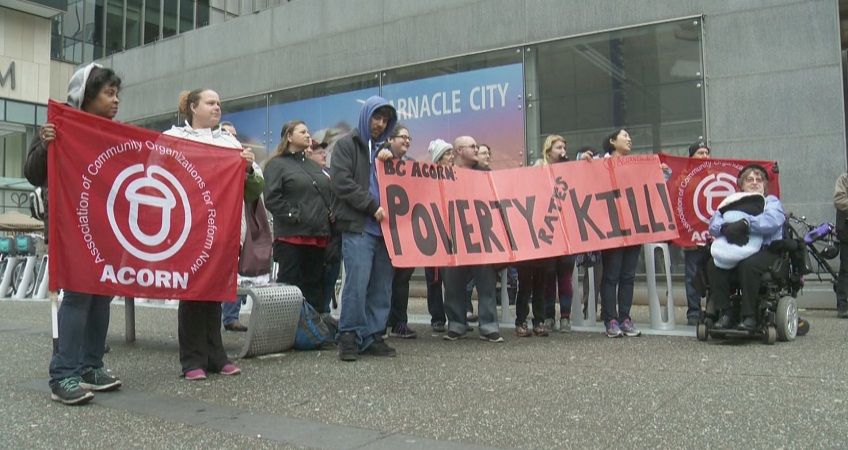A handful of protesters, most of whom had disabilities, gathered in downtown Vancouver Saturday to mark the International Day of Persons with Disabilities. They wanted to express their concerns that the B.C. government is short shrifting locals living with disabilities.

“People have to decide between rent or food or utilities. This is contrary to our rights,” said Tom Page, a volunteer for BC ACORN, an advocacy group made up of low- and moderate-income families.
Currently, the provincial government provides British Columbians with disabilities with up to $983.41 in financial assistance per month, but members of BC ACORN say this is not enough and many disabled people rely on food banks.
BC ACORN is calling for an $1,800-per-month disability rate and a restoration of the $45 annual bus pass for persons with disabilities, a program that was cancelled by the provincial budget earlier this year.
READ MORE: Online petition seeks to bring back $45 yearly bus pass for people with disabilities “
“We’re living on essentially $5 an hour,” said Page. “We are $900 below the poverty line and we have been for over nine years now.”
He added that research showed that ending this poverty would be less expensive for the province than responding to increased healthcare and other costs associated with poverty.
“If you give to the poor, they’re going to spend it in the local economy. That’s going to create jobs in the local economy,” Page said.





Comments